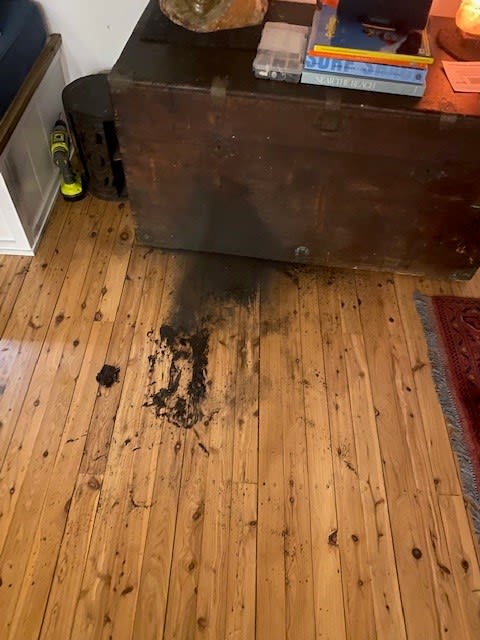Consumers urged to choose quality batteries this sale season after record number of fires + Nation-first Information Standard for lithium-ion e-bikes and e-skateboards: feedback open to december 6


- Install active smoke alarms in your home/garage
- Always buy reputable lithium-ion battery brands and never ‘mix and match’ components
- Don’t leave devices charging in bedrooms or on beds, sofas or around highly flammable materials
- Try to charge devices outside if possible
- Beware of cheap, substandard lithium-ion battery-powered devices
- Avoid dropping, crushing or piercing battery cells
- If lithium-ion batteries are damaged or compromised, dispose of them properly
- Don’t throw them out in the rubbish, they can start garbage truck or rubbish tip fires when compacted
- Contact your local, approved recycling centre for disposal advice
- Store batteries and devices in a cool, dry area, away from combustible materials
- Ensure you have a home evacuation plan in the event of fire
Nation-first Information Standard for lithium-ion e-bikes and e-skateboards
November 4 2024 NSW Government release
In an Australian first, NSW Fair Trading is set to introduce an Information Standard for lithium-ion battery-powered e-micromobility products, as it powers up its nation-leading effort to protect consumers from safety risks posed by the increasingly popular devices.
Information Standards regulate what guidance and warnings are provided to consumers about goods and services, with an aim to keep purchasers informed of the risks products carry and how they should be used to avoid those risks.
E-micromobility products include e-scooters, e-bikes, e-skateboards, self-balancing hoverboards and their associated chargers.
If retailers in NSW do not provide product guidance mandated by an Information Standard, they could be subject to penalties of up to $5,500 for each breach.
NSW Fair Trading’s proposed Information Standard for lithium-ion battery-powered e-micromobility devices will provide consumer advice and warnings on:
Fire safety and emergency procedures – identifying signs of a fire and procedures to be followed in case of an emergency.
Electrical safety – warnings for consumers about lithium-ion batteries, battery charging and warnings against modification of the device.
Product storage – information on safe storage and protection from environmental hazards.
Use, service and repair – information about safe use practices, what to do if there is any damage to the device, and details about service and repair centres.
Road rules – information urging consumers to check the road rules applicable to their device.
End of life – best practices for disposal of devices and lithium-ion batteries.
The forthcoming Information Standard, which is expected to be introduced in early 2025, will support the new product safety standards for lithium-ion e-micromobility devices.
The safety standards announced in early August require e-bikes, e-scooters, hoverboards and e-skateboards to meet new testing, certification, and marking requirements, and will be introduced in a staged process from 1 February 2025.
The product safety standards are intended to curb the fire-risks associated with lithium-ion e-micromobility devices by ensuring low quality and dangerous versions of these products cannot enter the market and be sold on to unwitting consumers.
Retailers, manufacturers and suppliers will face fines of up to $825,000 for not complying with the new safety standards.
E-micromobility products were the single largest group of lithium-ion battery-powered devices associated with fires in 2022 and 2023, with Fire and Rescue NSW recording 90 incidents related to the products in those years. There have been 72 fire-incidents connected with e-micromobility products in 2024.
This work by NSW Fair Trading complements the regulatory work for batteries being undertaken by the NSW Environment Protection Authority – showing that NSW is leading the way when it comes to protecting consumers, workers and the environment from battery risks now and into the future.
NSW Fair Trading is consulting with industry stakeholders and Government agencies to determine what should be included in the Information Standard. The public can have their say at: www.haveyoursay.nsw.gov.au/lithium-ion-battery-powered-micromobility-vehicles until 6 December 2024.
For more information on the new lithium-ion battery powered e-micromobility product standards, please visit: www.nsw.gov.au/new-safety-standards-for-lithium-ion-batteries-e-mobility-devices
Minister for Better Regulation and Fair Trading Anoulack Chanthivong said:
“We need to ensure we have a robust regulatory framework to keep consumers safe from the potential harms posed by some lithium-ion battery-powered products.
“This Information Standard is another step in building that framework and will provide consumers with the information they need to stay safe when using e-micromobility devices.
“The NSW Government looks forward to working with, and hearing from stakeholders and the public, about what they think consumers need to know before they buy an e-bike or other e-micromobility product.”
Minister for Transport Jo Haylen said:
“As we move towards legalising the use of e-scooters and other micro-mobility devices on NSW roads, it’s vital we ensure these devices are up to standard and pass strict safety standards.
“Ensuring that high quality lithium-ion battery-powered devices are the only ones available on the shelves will keep people safe.”
Commissioner of NSW Fair Trading, Natasha Mann stated:
“NSW Fair Trading has been working closely with consumers, industry, and other Government agencies to ensure people are protected from the risks posed by lithium-ion e-micromobility products.
“While new product standards for manufacturers, retailers, and suppliers are set to come into effect from 1 February next year, an Information Standard will give people access to the guidance they need when purchasing one of these products.
“These changes are about empowering consumers to make informed decisions when they first buy a product and knowing how to use it safely through the product’s life.”
Related, report in Issue 636: State Government announces 'E-scooters kick toward legalisation in NSW', releases an E-Micromobility Plan: calls for Mandatory Registration, third-party insurance, 'keep them off footpaths' rise in response